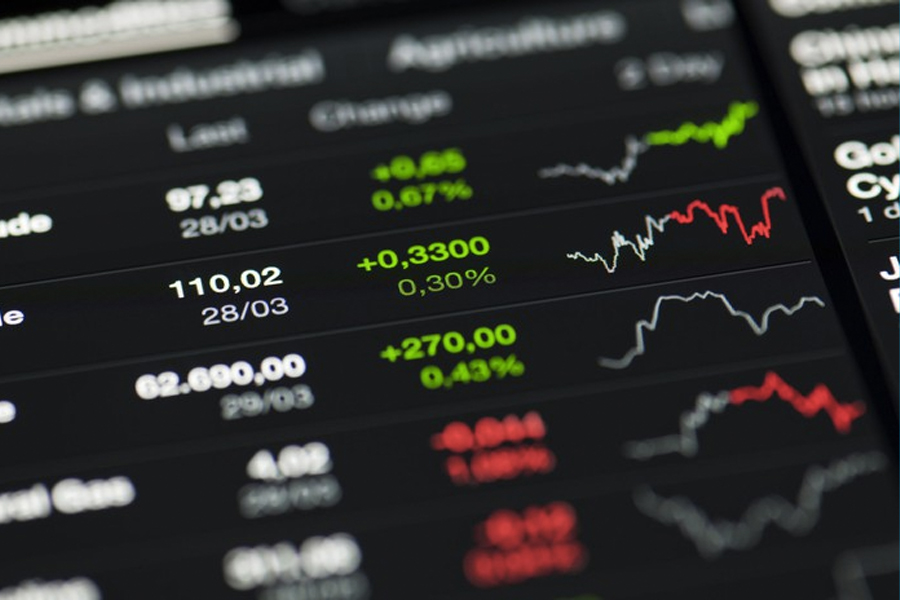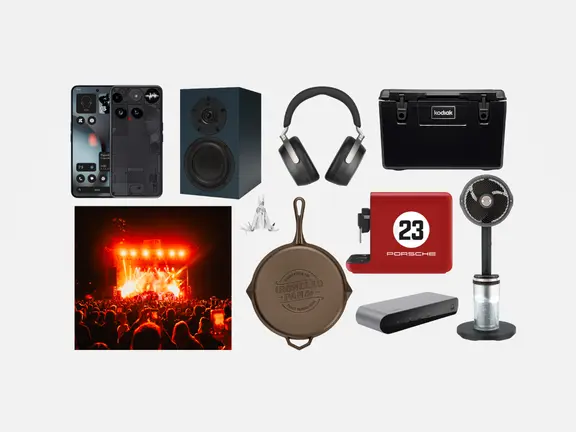Readtime: 17 min
Every product is carefully selected by our editors and experts. If you buy from a link, we may earn a commission. Learn more. For more information on how we test products, click here.
We’ve all thought of playing the stock market, securing an easy pay-day and sailing off into the sunset, but investing in stocks isn’t as easy as the movies make it out to be. The process is an incredibly long and laborious one that will test your wits, patience and financial literacy on a near-daily basis, but for those looking to learn how to invest in stocks, there is money to be made.

Stocks for Beginners
Before we delve too deep into the world of stocks and figures, it pays to know what we’re talking about. Put simply, investing is the act of committing money or capital to an endeavour with the expectation of obtaining an additional income or profit. While this certainly sounds like a major cash injection, that’s not always the case. The key to investing for beginners is understanding why you are entering the market in the first place.
Investing in stocks won’t make you a millionaire overnight, unless you are willing to put forward a substantial risk and significant capital. Instead, those learning how to start investing are advised to focus on setting money aside for a later date. Think of it as a long-term plan that will perpetually grow and evolve to help you reap the rewards of your hard work later on. Legendary investor Warren Buffet explains investing in stocks as the “process of laying out money now to receive more money in the future”. The goal should be growing the value of your financial portfolio, not looking to reap an instant reward and dip out.
Through this guide, we’ll explain investing for beginners and the process of learning how to invest in stocks. Remember, it’s not all Wolf of Wall Street and Trading Places; the world of stocks is a tricky one. So, sit back, grab a pen and let’s talk numbers.
Why Do People Invest in Stocks?
Aside from the obvious financial gain, investing in stocks has some other major benefits. Sure, the overall goal may be to build your finances, but there will also be opportunities to use your stock investment knowledge to develop further business, professional and personal in-roads. Here are some other reasons people invest in stocks;
- Unlike consuming, investing allocates money for the future, hoping that it will grow over time.
- Investing in the stock market allows beginners to gain investment experience.
- Some people believe the value of cash monies will drop, so they diversify their financial portfolio through stocks.
- Because it’s simple.
That being said, it’s important to acknowledge that investing in stocks also comes with the risk for losses. Don’t be deterred by a drop in finances. Not every investment you make will pay off, which is why having an understanding of how to invest in stocks properly is critical to your eventual success.
How Do You Make Money From Stocks?
Like all transactions, you make money from stocks by buying when the price is low and selling when the price is high. The difference between the two will be your capital profit or loss.
Alternatively, you can also earn money through dividends. For those who aren’t sure what that is, a dividend is a percentage of a company’s annual profit which some companies choose to pay to their shareholders. Dividends are typically paid twice a year and you can either bank these or reinvest them to compound profits.

What Kind of Investor Do You Want to Be?
One of the biggest questions you need to ask yourself before you start investing in stocks is what kind of investor you want to be. It is unlikely that you will see significant returns on any investment you make without putting forward substantial capital, but therein lies the predicament. With any kind of financial investment, it pays to be cautious and measured in your approach, however, there are options at every level of activity and knowledge.
- Active investor – These investors want to take an active hand in their money’s growth. While you can be aggressive in your targeting of specific markets and stocks, it is still advised that you do your research before any investment.
- Passive investor – The ‘set and forget’ method, these investors generally work with brokers to diversify their portfolio and watch it grow slowly.
At the end of the day, there isn’t a right or wrong approach when it comes to investing for beginners. The only things that are absolute musts are research, knowledge and due diligence.
Things to Know About Investing in Stocks
Investing for beginners can be an intimidating situation. Understanding what it is that you are looking to do is one thing, but navigating the complex financial world to make it happen is another. Here are some basic things you need to be aware of before you learn how to start investing.
Brokers
On a basic level, if you want to start investing in stocks, you will need to employ the services of a broker. Brokers can be either full-service or discount. Full-service brokers offer a full range of traditional brokerage services, including financial advice for a whole gamut of investing avenues. That could be;
- Retirement
- Healthcare
- Financial growth
While this option is great, full-service brokers usually only deal with high-net-worth clients. This is important to note as the fees can be extremely high, with these brokers charging substantial fees to perform the service. Examples of full-service brokers in Australia include;
- Goldman Sachs
- Morgan Stanley
- Morgans
On the other end of the spectrum are online brokers, otherwise known as share trading platforms, like eToro. Often, in these instances, you place the trades yourself. The brokerage fees are generally far less than full-service brokers and the option will suit those looking to dip their toes into the stock market water.

How to Choose a Broker
There are certainly some considerations that you need to be aware of when it comes to choosing the right broker for you. These include;
- Brokerage fees – This is the fee that applies to each transaction you make, either buying or selling. This could be a flat fee or a percentage of the total transaction cost depending on whichever platform you choose to go with.
- Trade capabilities – Knowing what you can and can’t trade is another key consideration to add to your investing for beginners checklist. While some platforms only offer access to Australian stocks, others like eToro allow you to trade on global stock exchanges.
- User experience – Like purchasing a new computer or smartphone, you want to be able to quickly navigate the platform easily. Investing in stocks has become a highly visual experience in recent years, so it might be worth checking out your chosen platform’s visual, graphic and presentation options.
- Purpose – Going back to our original point of understanding what kind of investor you want to be, consider who the ideal investor for the platform is. Are you a casual investor, or are you taking an active approach to your investing?
- Customer support – As with any service, it pays to have someone on your side. You need to have the reassurance that should issues arise, you can easily get in contact with the support team.
How to Sign Up to a Broker
Once you’ve got your mind made up on a broker. you’ll need to follow a few steps. Namely, to sign up to a broker in Australia, you’ll need to be at least 18 years old and an Australian resident. From here, registering for an account with a broker is usually free, however, you may incur subscription fees or fees to transfer funds to your account. New customers will need to provide;
- Your name, address, date of birth and contact details
- Your tax file number (TFN)
- Proof of ID
- Bank account details
Once you have submitted the information, you could be approved in as little as a few minutes or you could be waiting up to a fortnight, depending on your platform. Additionally, you may also be asked to deposit a small amount to open an account. This will usually be through BPAY, bank transfer, credit card or debit card.

How to Invest in Stocks
So, you’ve come this far and you’re still keen to start investing in stocks. The good news is; you aren’t alone, particularly in light of recent global economic conditions. “We’ve seen the pandemic play a huge role in people getting started in investing,” Robert Francis, Australian managing director of investing platform eToro says. “So far this year, we have seen a 100 per cent growth in numbers of new registrants on eToro worldwide in H1 this year compared with the same period last year. The pandemic-induced market volatility has put the topic of investing front of mind for many.”
The unpredictability of the market and prospective job losses have seen workers across the globe turn to alternative methods for financial stability, the majority moving towards investing in stocks. According to Francis, the recent economic changes, while damaging for some industries, have been a massive boom for others.
“The new S&P/ASX All Technology Index (XTX) has seen around 80 per cent growth since 23 March 2020, with names like Afterpay and Nitro Software bucking the COVID-19 decline. While shareholders have been hit by heavy losses, many will be using the market lows to keep an eye out for new investment in opportunities,” he tells Man of Many.
“Industries impacted the most by lockdowns have experienced the worst losses in terms of share price action. However, the shift to remote working, online shopping and virtual communication have seen an uptick in price for companies like FedEx and Zoom, whose services, and consequently stock, are in higher demand than usual. Globally, similar indexes such as the tech-heavy NASDAQ, comprised of names like Amazon and Google have experienced some of the biggest bull runs we’ve ever seen, this week hitting an all-time high. “
So, with that in mind, what are the eToro Australian managing director’s top investing for beginners tips?
1. Seek Financial Advice
Once you’ve made the decision to start investing in stocks, you really need to get a handle on your own personal finances. Make an appointment to visit your local bank branch or accountant and have an open and honest discussion about your financial capacity. There are stocks to be made at any budget, but knowing your fiscal limitations is critical. It’s important to remember that investing in stocks in a long-term financial decision, not glorified gambling.
2. Learn the Lingo
“The stock market can be riddled with terms that you must understand before trying to navigate the market,” Francis says. “Once you’ve learnt the basics, you may want to learn how to read charts and monitor things like moving day averages or RSI, which shows the volume at which a stock is being bought or sold.” Here are some of the common terms to get across;
- Bid price – The highest price any trader is offering to buy a company’s stock at that moment.
- Offer price – The lowest price any seller is willing to accept.
- Last price – The most current price – and also the last price bidders agreed upon.
3. Invest in What You Know
“The world’s best investors invest in companies they know well or are passionate about,” Francis explains. “For example, if you love tech, you may decide you want to buy stock in Apple or Microsoft. If you’re yet to find your niche, I’d suggest checking out the social feed on eToro to see what companies people are talking about, or spend some time reading finance publications or listening to podcasts.”
Some things you should consider when it comes to selecting what stocks to invest in are;
- Trust – Do you trust that this company will continue growing and will use its profits wisely?
- Knowledge – Do you use this company’s products? Often, the customers are the first to know if the quality level is dropping off.
- Debt levels – Is this company’s debt under control?
- Profit growth – Are the company’s profits growing? Will this continue?
- Expansion – Has this company outlined plans to grow?
- Dividends – Does this company offer a dividend structure?
4. Start Small
“Start small, but invest regularly. It’s a common misconception that you need a lot of money to make investing worthwhile,” Francis says. “On eToro, you can open a stocks position with as little as $50 USD.”
To purchase stocks, there are a few steps you’ll need to take, depending on the type of broker that you have. If you have a full-service broker, you’ll need to call or email them to place the trade. If you are using an online broker, you’ll need to do this yourself. To place a trade using an online broker;
- Login to your trading platform.
- Select the stocks you wish to purchase by entering the company name or stock code.
- Enter the number of stocks you’d like to buy or the amount you’d like to invest.
- Select your order type. For this, you can either buy at the current price or use a limit order to pick a better price.
- Preview and confirm the purchase.
5. Diversify
“Don’t put all of your eggs in one basket. Investing in businesses from various sectors will help build a broad portfolio that spreads out and effectively lowers your risk,” Francis says. “Investing $1000 across 10 or so companies is much smarter than investing $1000 in one.”
6. Play the Long Game
As we said, it’s important to remember that investing is a long-term game. “Adopt a longevity mindset when it comes to investing. If you’re chopping and changing your investments frequently, you could miss out on profits because these companies might not have had the chance to reach new resistance levels. You’ve also got a better chance of riding out any market volatility,” Francis explains.

How Much Does it Cost to Buy Stocks?
While there is money to be made investing in stocks, the costs can stack up. Here are the costs that you will encounter in your investing journey.
Minimum Investment
In Australia, there is a minimum investment of $500 for every new ASX company that you invest in. Even if the shares you plan on buying are valued at $5, you’ll need to purchase 100 in order to make the investment if it’s your first time buying.
While this is a general rule for Aussies, it’s not universal. The rules do change depending on which stock a country is from. This is where investing for beginners can get tricky. Certain US markets, for instance, will allow you to buy in for as little as a few cents, even if it’s your first time buying. There is also a process known as fractional investing where you can buy in fractions rather than whole stocks.
Tax
Yep, sadly even on your savvy investments, you’ll need to pay tax. In Australia, any income you make from dividends is automatically recorded by the Australian Taxation Office (ATO) and is included as part of your regular taxable income at tax time. Conversely, profits that you make on capital gains (when you buy low and sell high) are only counted in the financial year that you’ve sold your shares. Your broker should send you a tax invoice with any profits that you’ve earned from stocks each financial year.
Fees
We’ve already touched on this before, but commission fees are an often overlooked part of the process, particularly when it comes to investing in stocks for beginners. Brokerage fees can be anywhere around $10-$30 on share trading platforms, all the way up to $50-$150 for full-service brokers. That being said, certain platforms offer commission-free options. For example, eToro launched zero commission stocks and fractional stocks in Australia in May. Additionally, you may encounter currency conversion fees (for foreign stocks), account fees, custody fees (for US stocks) and inactivity fees. Make sure you factor these fees into your forecasting.
Investing for Beginners Common Mistakes
While investing for beginners is getting easier and easier, particularly with the rise of trading platforms, you can still run into trouble. Francis says there are three common issues new investors often make.
- Going in blind – Jumping into the stock market without having any prior knowledge is not wise. Inexperienced investors taking high risks are most likely to lose capital. Watch, learn and practice before investing any money. On eToro investors can learn practice with a virtual account so you can play around with a mock portfolio without having to risk any real money.
- Not doing your homework – Some investors don’t spend enough time doing their research on some of the businesses they invest in. By researching particular sectors and trends, you’ll gain insight into what companies are booming and those you should steer clear. If you don’t have the capacity to commit to ongoing research, then copying someone else who does, like an eToro popular investor, may be the better route for you. You mirror the positions they open with their own money, so by having skin in the game, you know they are making considered decisions.
- Investing more than you can afford to lose – The stock market is not a get-rich-quick scheme. Only invest what you can afford to lose. High-risk mindsets amongst inexperienced investors may result in significant losses, especially during the global pandemic when markets have been extremely volatile.
Disclaimer: The advice provided on this website is general advice only. It has been prepared without taking into account your objectives, financial situation or needs. Before acting on this advice you should consider the appropriateness of the advice, having regard to your own objectives, financial situation and needs. If any products are detailed on this website, you should obtain a Product Disclosure Statement relating to the products and consider its contents before making any decisions. Where quoted, past performance is not indicative of future performance. The user must accept sole responsibility associated with the use of the material on this site, irrespective of the purpose for which such use or results are applied. The information on this website is no substitute for financial advice.
You’ll also like:
25 Simple Ways to Make Extra Money
Everything You Can Do Once NSW Hits 80% Vaccinated
14 Best Budgeting & Money Apps
General FAQs
While Australian stocks have a minimum investment of AUD$500 for first-time buyers, you can start investing in stocks from US markets and overseas from as little as a few cents. These stocks may incur some currency and conversion fees, however.
A dividend is a portion of a company’s profit that it decides to pay out to shareholders, in return for their investment. In Australia, this usually happens twice per year.
In Australia, if you make any profits from stocks, you will need to pay tax. In the form of dividends, the tax is automatically recorded by the Australian Taxation Office (ATO) and is included as part of your regular taxable income at tax time.



































Comments
We love hearing from you. or to leave a comment.